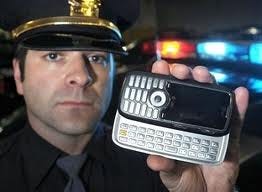Police are amassing a large database of stolen cell-phone records.

New York - When a cellphone is reported stolen in New York, the police department routinely subpoenas the phone’s call records, from the day of the theft onward. The logic is simple: If a thief uses the phone, a list of incoming and outgoing calls could lead to the suspect.
But in the process, the Police Department has quietly amassed a trove of telephone logs, all obtained without a court order, that could conceivably be used for any investigative purpose.
The call records from the stolen cellphones are integrated into a database known as the Enterprise Case Management System, according to Police Department documents from the detective bureau. Each phone number is hyperlinked, enabling detectives to cross-reference it against phone numbers in other files.
The subpoenas not only cover the records of the thief’s calls, but also encompass calls to and from the victim on the day of the theft. In some cases the records can include calls made to and from a victim’s new cellphone, if the stolen phone’s number has been transferred, three detectives said in interviews.
Police officials declined to say how many phone records are contained in the database, or how often they might have led to arrests. But police documents suggest that thousands of subpoenas have been issued each year, with each encompassing anywhere from dozens to hundreds of phone calls.
To date, phone companies have appeared willing to accede to the Police Department’s requests for large swaths of call records. Memos issued Sept. 28 by the chief of detectives, Phil T. Pulaski, instruct detectives to prepare subpoenas for stolen phones assigned to AT&T, Verizon, T-Mobile or Metro-PCS. With these carriers, the police do not generally seek the victims’ consent; in fact, the subpoenas are executed without the victims’ knowledge. (It does not appear that subpoenas are issued when the stolen phone is served by Sprint Nextel. In those cases, detectives are instructed to ask the victim to fill out consent forms that authorize Sprint Nextel to release call records and location information to the police.)
“If large amounts of victim phone records are being collected and added to a searchable database, it’s very troubling,” said Michael Sussmann, a lawyer who represents wireless carriers, in a phone interview.
“We’re all used to the concept of growing databases of criminal information,” Mr. Sussmann, of the firm Perkins Coie, said, “but now you’re crossing over that line and drawing in victim information.”
Police officials would not say if detectives had used the call records of any cellphone theft victims in the course of investigating other crimes. Paul J. Browne, the Police Department’s chief spokesman, did not reply to more than half a dozen requests for comments.
The practice of accumulating the phone numbers in a searchable database is “eye-opening and alarming,” a civil rights lawyer, Norman Siegel, said when told of the protocol for subpoenaing phone records. “There is absolutely no legitimate purpose for doing this. If I’m an innocent New Yorker, why should any of my information be in a police database?”
http://www.nytimes.com/2012/11/27/nyregion/new-york-city-police-amassing-a-trove-of-cellphone-logs.html?ref=technology&_r=0


